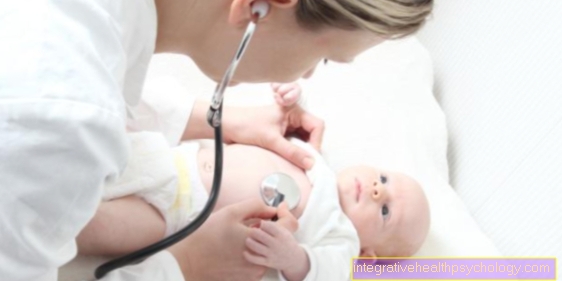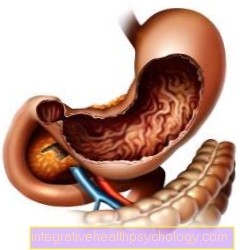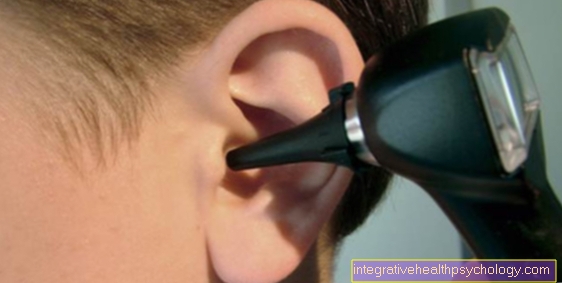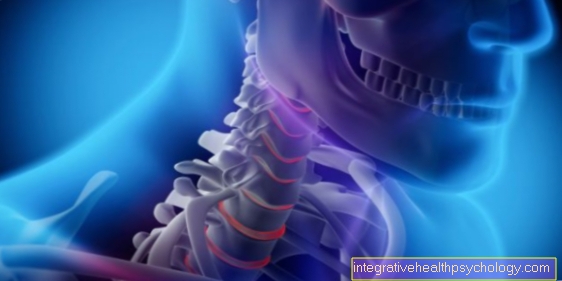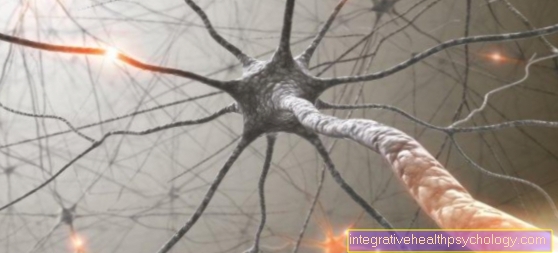Learning disabilities in children
Introduction - What is a learning disability?
Learning disabilities are common in children and are not always diagnosed as such. A learning disability can persist over a certain period of time or be long-lasting with a chronic character. The severity of a learning disability can be mild, moderate or very severe. A learning disability can define itself in a certain performance area in a child or even negatively affect the entire performance spectrum. Accordingly, learning difficulties can be very different in different children.
Read more about the topic here: Problems with learning and school enrollment

What are the causes of learning disabilities in children?
Learning difficulties in children can have very different causes. Some of the learning disabilities are linked to organic causes. Learning disabilities can be hereditary or a symptom of certain diseases such as autism or ADHD. If a learning disability only occurs in adulthood, severe brain damage, such as a stroke or craniocerebral trauma, may even be the trigger. In addition to these serious causes of learning disabilities, there are reasons that are less obvious.
If children suffer from extreme pressure from parents and / or teachers or suffer from fear of school, serious learning blocks can occur. The social environment plays an important role in the development of learning difficulties. If children have problems at home, or if their parents divorced, or if they have a lot of conflicts that the children notice, it can have a negative effect on the children's performance. Children can also suffer if they are bullied by classmates. Learning disabilities can have genetic, organic, but also psychosocial causes.
Here you can find out more about: Difficulty concentrating
Diagnosis of learning disabilities - what now?
If, as a parent, you suspect a learning disability in your child, it can be helpful to talk to the child's teacher first. The latter can assess the child's learning behavior and often better assess whether it is a temporary learning block or a learning disability that requires treatment. The school and the pediatrician can recommend child and adolescent psychiatrists if a learning disability is suspected. These are experts who can professionally examine the child's development and learning behavior.
How is a learning disability tested?
There are different forms of learning difficulties and no standardized test to prove them. There are standardized test procedures for the frequently occurring learning difficulties, reading and spelling weaknesses (dyslexia) and arithmetic weaknesses (dyscalculia).Spelling skills can be tested with the WRT, DRT or HSP, while reading skills can be tested with the ZLT-II or SLRT-II test.
A mathematical weakness in elementary school age can be tested with the Heidelberg math test. An intelligence test is often recommended in children with learning difficulties. Child-friendly intelligence tests are HAWIK, CFT and K-ABC.
It is not uncommon for the causes of a temporary learning block to be traced back to psychosocial factors, such as fear of school or conflicts in the social environment. It is therefore important that the examination is carried out by an experienced child and adolescent psychiatrist. Such a person has the means to examine the psychological state of the child and the attention and concentration. Psychological well-being is examined with child-friendly tests, such as DTK, AFS and "Animals in Pictures". The attention and concentration ability of children is analyzed with the TAP test and a thorough discussion with the child and parents. The examinations mentioned enable the examiner to uncover or exclude specific learning difficulties in the child. Overall, learning disabilities can be very different from one person to the next.
These articles might also interest you:
- Early detection of a weakness in calculation
- Symptoms of a weakness in numeracy
- Early detection of a reading and spelling weakness
- Symptoms of poor reading spelling
These are the accompanying symptoms of a learning disability!
Learning difficulties mean that children stand out negatively in certain performance areas. This weakens the children's self-confidence. Often they develop fear of failure, fear of criticism and no longer trust themselves to do a lot. Accompanying symptoms of a learning disability can be fear of school and overall introverted behavior. Many children withdraw and occupy themselves with themselves. It is not uncommon for these children to be labeled loners in school. Failure at school means that many children with learning difficulties do other things in which they are more successful. This includes various sports activities and computer games. Young people can be tricked into engaging in alcohol, drugs and cliques that are not good for them.
Here you can find out more about the topic: Behavioral problems in children
What are the symptoms of a learning disability?
The symptoms of a learning disability can be very different and depend on whether a child has difficulties learning in one performance area or in general. Reading and spelling weaknesses are very common and are recognized in many cases in the second year of primary school. Symptoms are particularly slow reading, unusually faltering reading, and swapping syllables in words. The children omit words, syllables, and letters, and mistakenly add those that do not fit the context. In addition, children with dyslexia have difficulty understanding what they have read and expressing it in their own words. In addition, the children become conspicuous when writing texts and dictations because they make an above-average number of mistakes. They often find grammar and punctuation difficult. Other symptoms of dyslexia are poorly legible handwriting and different font sizes within a text.
Find out more about: Diagnosis of reading and writing difficulties
In addition, poor numeracy also causes characteristic symptoms. The children often have difficulty reading the clock, counting the number of objects and using proportions such as “more” and “less” correctly. Many children with numeracy difficulties use their own fingers for a long time and cannot write or name numbers correctly.
You can find out more about the topic here: Diagnosis of a numeracy weakness
The various learning difficulties have in common that the children need significantly longer for the tasks than their peers without learning difficulties. Learning disabilities often lead to abnormal psychosocial behavior in the children. Fearing failure, the children avoid the unpleasant tasks and withdraw.
Treatment and therapy of a learning disability
In children, learning difficulties lead to a lot of failure. These failures damage children's self-confidence. Therefore it is very important to rebuild self-confidence in children with a learning disability. Depending on the cause, treatment may include solving family problems and removing pressure to perform. It is important to get as far as possible out of the way of social factors that affect the child's learning behavior. The process requires a lot of patience from both the child and the parents. If a child suffers from a congenital learning disorder, an inclusion class or a special school can be considered. Basically, the therapy of a learning disability is very individual. Every child must be encouraged and supported personally.
Read more on the subject here:
- Learning problems
- Early intervention
Duration of a learning disability
A learning disability can last very differently. Some children have a learning disability, especially at the start of school, which only lasts for a short time (a few months). In other children, a learning disability lasts much longer, in some even chronic.
Prognosis of learning disabilities
Learning disabilities can in many cases be treated well if you start exercising early. This can often reduce many deficits compared to children without learning disabilities. In addition, with early treatment of the learning disabilities, the children suffer less from psychosocial factors such as school anxiety or constant failure. Treating a learning disability early on can help children develop well and is associated with a good prognosis.
Learning disabilities in adults
Learning disabilities may not be recognized or hidden for years. There are numerous adults who suffer from learning difficulties such as reading, writing or numeracy difficulties. This is because many people with learning disabilities develop tricks in childhood in order not to attract attention and have to write or do arithmetic. Unfortunately, shame grows with age, and adults often find it harder to talk about their weakness. A major disadvantage is that many adults with learning difficulties make themselves dependent on other people for certain things. A learning disability is not something to be ashamed of and you can still work on the deficits in adulthood. As for children, there are exercises and tasks for adults with which they can treat and alleviate the learning disabilities.
Learning disabilities and poor concentration - what is the connection?
In fact, poor concentration, as in attention deficit / hyperactivity disorder, or ADHD for short, is often accompanied by learning difficulties. These include, for example, weakness in reading and writing and arithmetic weaknesses. If a child suffers from ADHD, one should ask oneself whether there are additional learning difficulties. At the same time, it can make sense to have an ADHD diagnosis carried out if there are learning difficulties. Unfortunately, the diagnoses of ADHD and learning disabilities in everyday life are often made by educators who are actually not trained to do so. Therefore, if you suspect a learning or concentration deficit, you should consult an experienced child and adolescent psychiatrist. If the disturbances are recognized early, there are many things that can be done to ensure that the child has fewer problems at school.
Learn more about: Symptoms of ADHD and Therapy for ADHD
Recommendations from the editorial team!
Are you worried your child might have a learning disability?
Find out more about the following topics:
- Problems with learning
- Learning disability
- Early detection of a reading and spelling weakness
- Early detection of a weakness in calculation
- Does my child have ADHD?
- Pisa study






